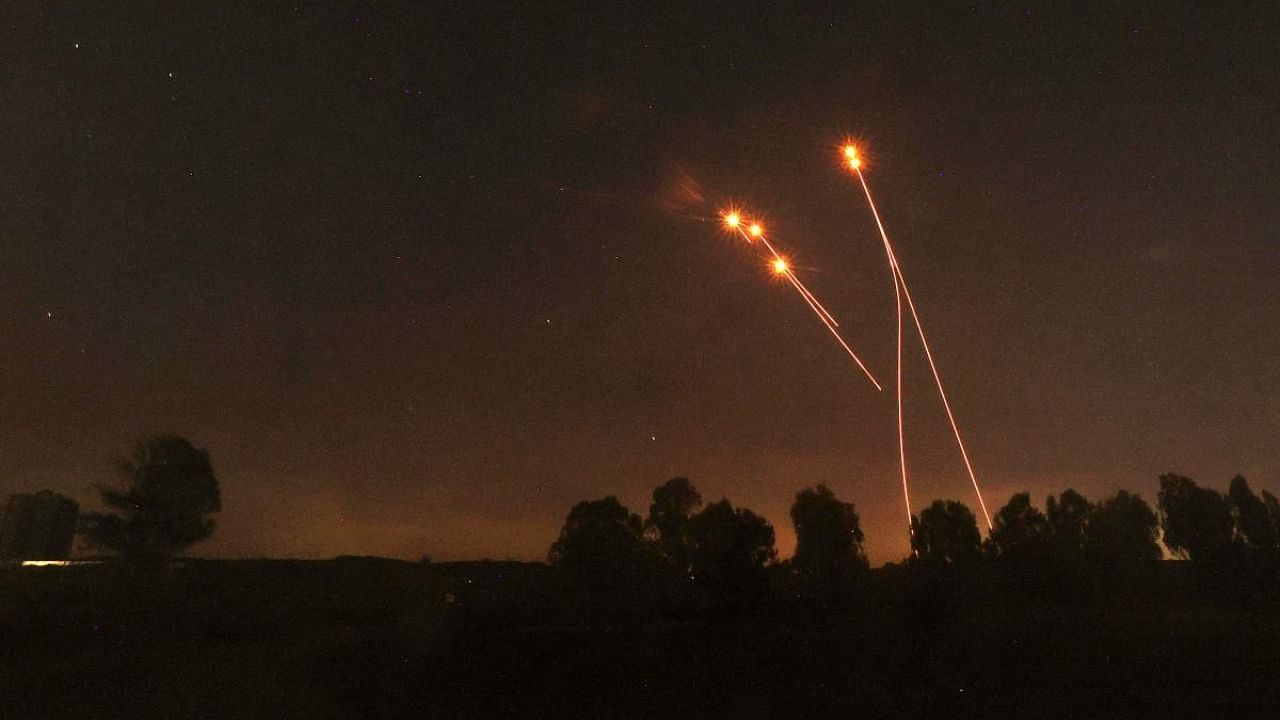
Clashes between Arab and Jewish mobs on the streets of Israeli cities have given way to warnings from Israeli leaders that the decades-old conflict could be careening toward a civil war. Prime Minister Benjamin Netanyahu described the scenes of arson and violence as “anarchy” and appealed for an end to “lynchings.”
On Thursday, Netanyahu visited the town of Lod, a mixed Jewish-Arab city where some of the worst clashes have occurred. He said that the violence there was motivated by nationalistic rioters and that soldiers from the Israel Defense Forces could be brought in. The military called up 7,000 reservists and canceled leaves for all combat units.
“There is no greater threat now than these riots, and it is essential to bring back law and order with these means,” he said. Riot control measures such as water cannons and administrative arrests may also be used, he said. Police have put strict measures in place in Lod, limiting entry into the city after 5 p.m. and instituting an 8 p.m. curfew.
A day earlier, Netanyahu had called the violence “unacceptable” and said, “Nothing justifies the lynching of Jews by Arabs, and nothing justifies the lynching of Arabs by Jews.”
Israel carried out more airstrikes against Hamas targets in Gaza, where the death toll rose Thursday to 83 people since the fighting began early this week, according to the Gaza health ministry. Palestinian militants fired volleys of rockets — some 1,800 in three days — that reached far into Israel, where seven people have died since Monday.
Alongside those now-familiar scenes, Jewish and Arab citizens have clashed in the worst violence in decades in Israeli cities — stoning cars, burning offices and places of worship, and forming mobs that have dragged people from their vehicles and severely beaten them.
Several Israeli leaders, led by President Reuven Rivlin, evoked the specter of civil war — a once unthinkable idea.
“We need to solve our problems without causing a civil war that can be a danger to our existence, more than all the dangers we have from the outside,” Rivlin said. “The silent majority is not saying a thing, because it is utterly stunned.”
Palestinian leaders, however, said the talk of civil war was a distraction from what they see as the true cause of the unrest — police brutality against Palestinian protesters and provocative actions by right-wing Israeli settler groups.
“The police shot an Arab demonstrator in Lod,” said Ahmed Tibi, leader of the Ta’al party and a member of Israel’s parliament. “We don’t want bloodshed. We want to protest.”
Gaza militants and Israeli forces have been trading attacks for days, since a police raid last week at a Jerusalem mosque atop a site revered by both Muslims and Jews.
Israeli border police have been deployed in Arab and mixed Arab-Jewish cities in Israel, and Defense Minister Benny Gantz ordered more of the forces into the streets Thursday after another night of unrest.
In a seaside suburb south of Tel Aviv, dozens of Jewish extremists took turns beating and kicking a man presumed to be Arab, even as he lay motionless on the ground. To the north, in another coastal town, an Arab mob beat a man they thought was Jewish with sticks and rocks, leaving him in a critical condition. Nearby, an Arab mob nearly stabbed to death a man believed to be Jewish.
Tamer Nafar, a Palestinian rapper considered one of the symbols of Lod, mourned the terrible rupture inside the community.
“Maybe we look at the word coexistence differently,” he said. “But so far there is only one side, the Jewish side.”
The Al-Aqsa mosque raid might have been the spark for the current round of hostilities, but the fuel was years of anger from Israel’s Arab minority, who makes up about 20% of the population. They have full citizenship, but rights advocates say they are victims of dozens of discriminatory regulations.
“The way that we are treated is as though we shouldn’t be here,” said Diana Buttu, a Palestinian political analyst from Haifa, a city in northern Israel.